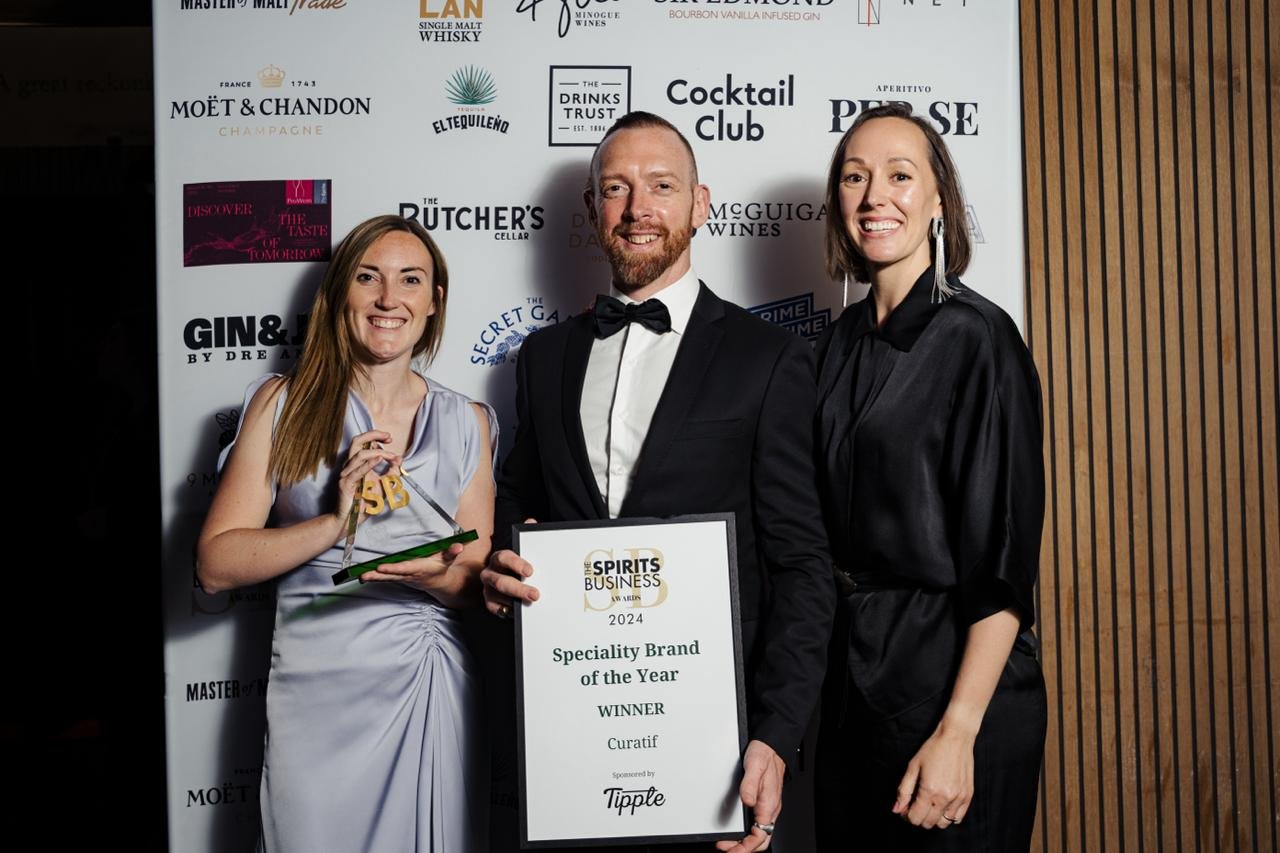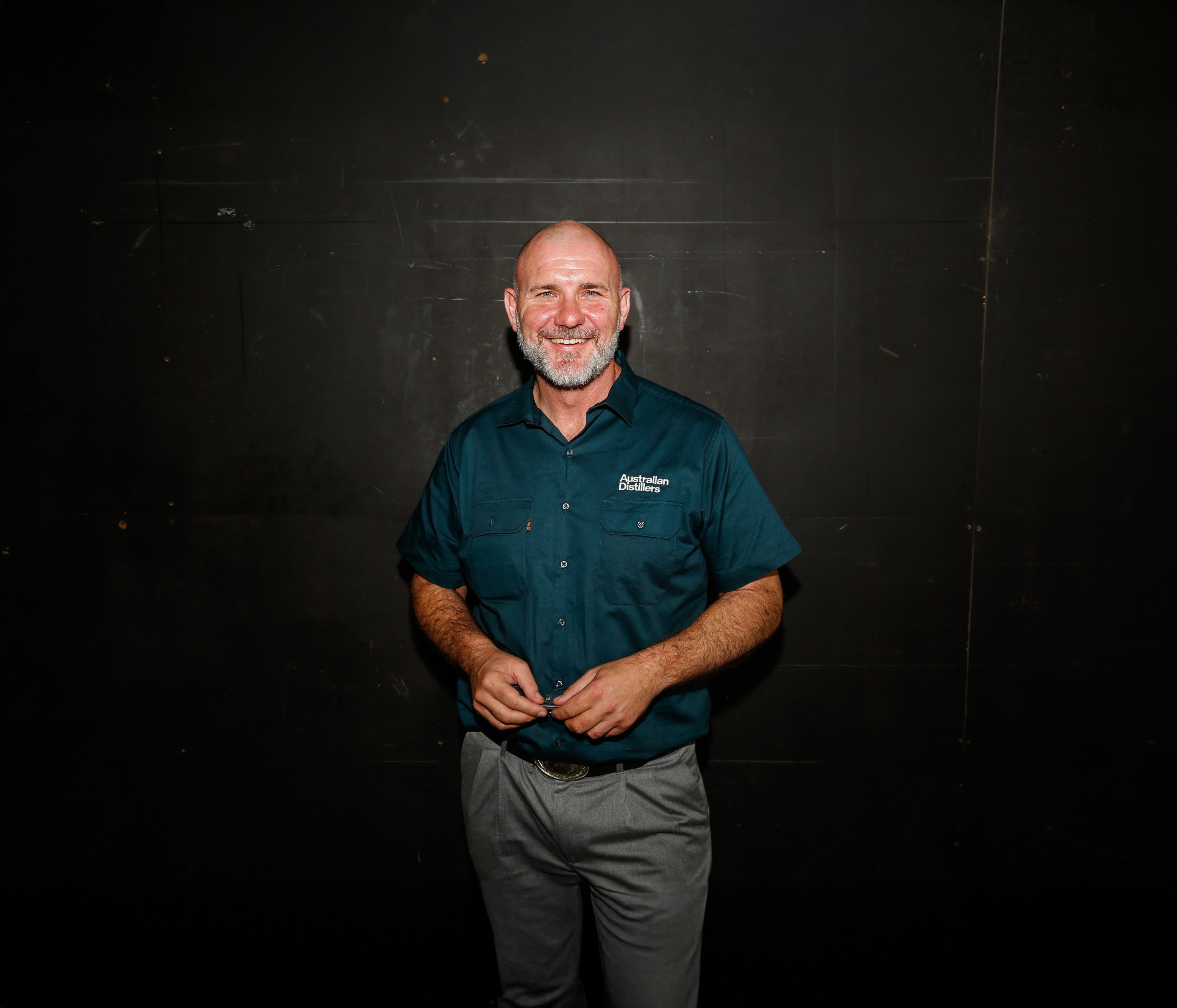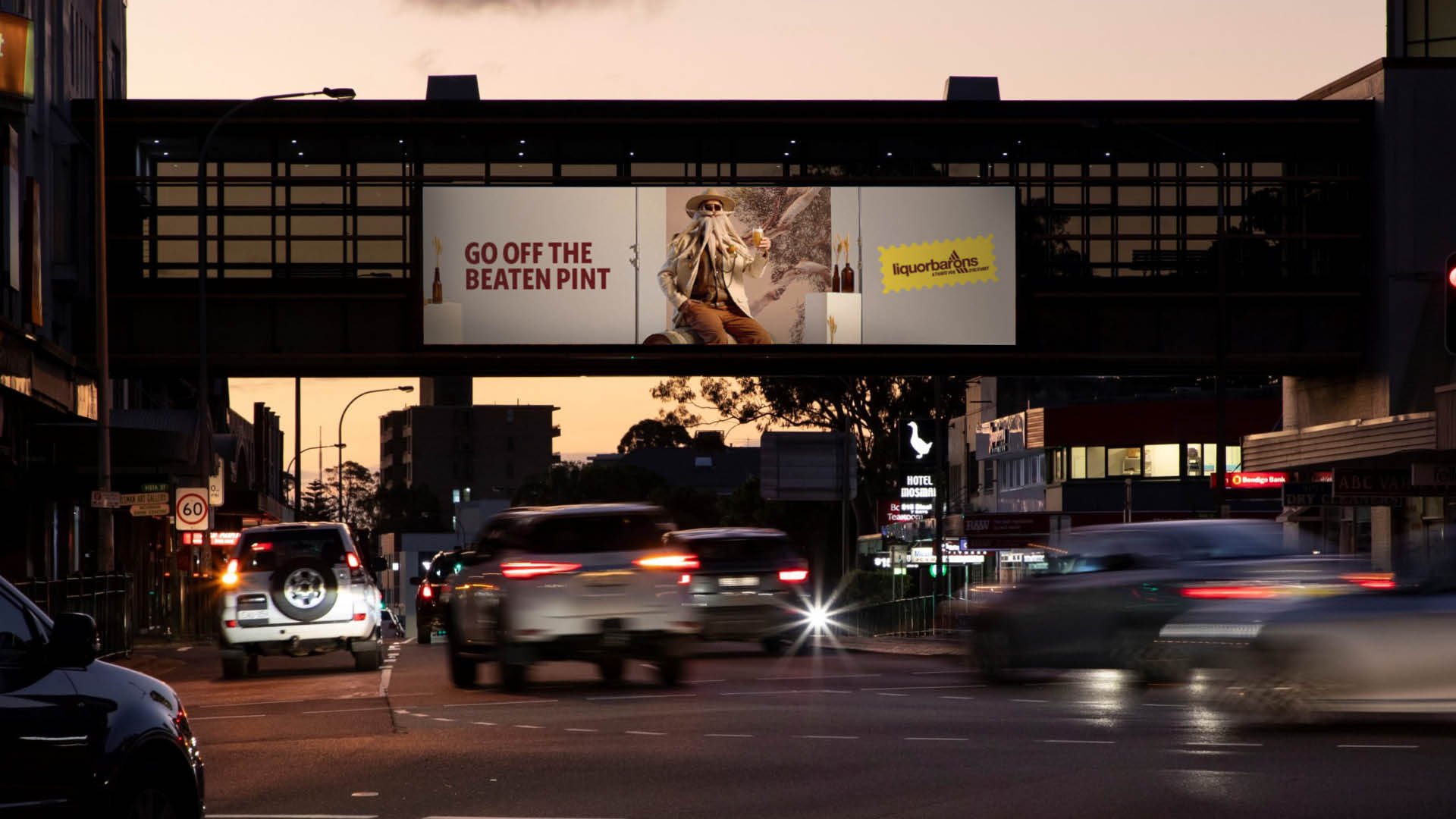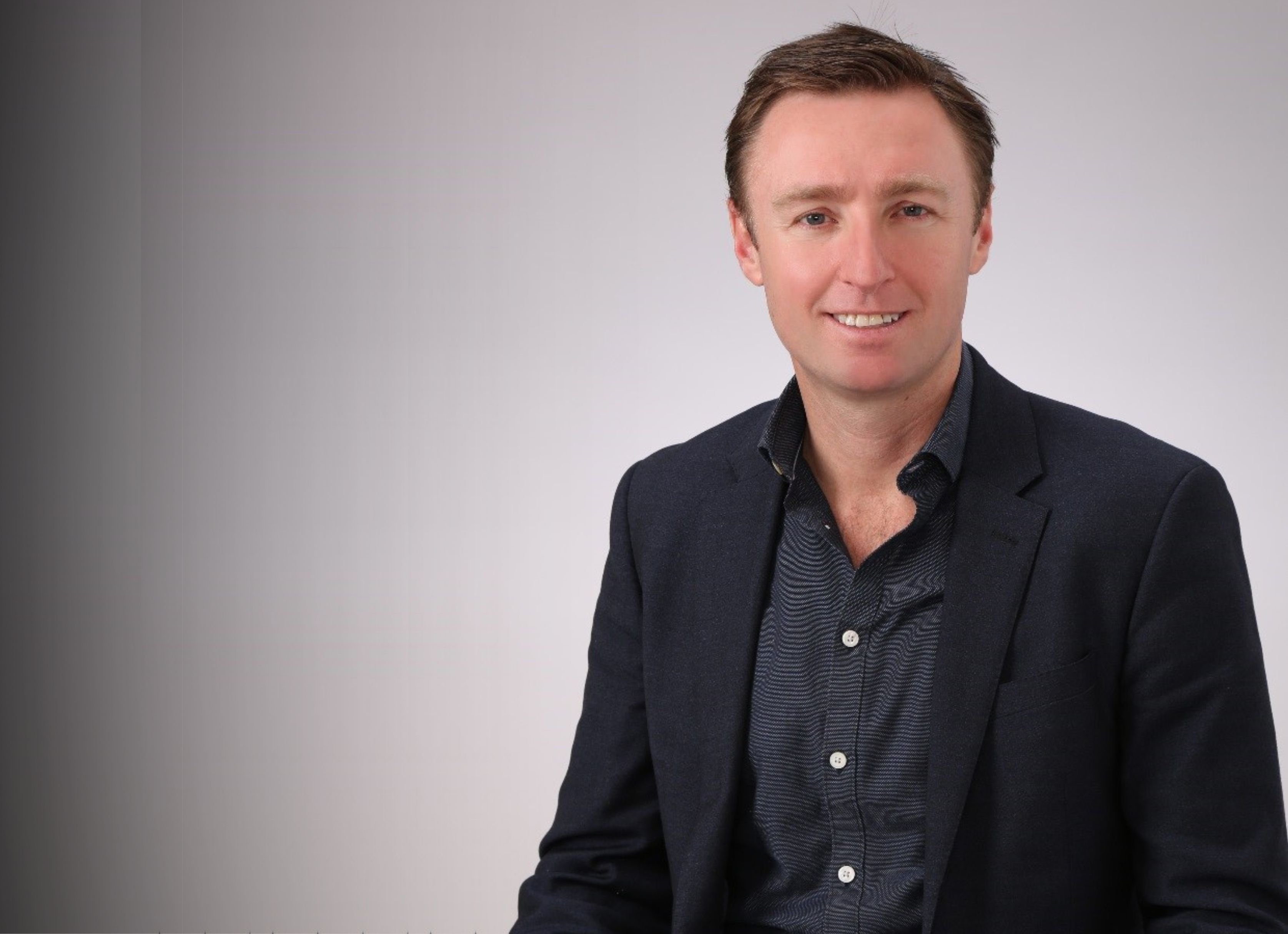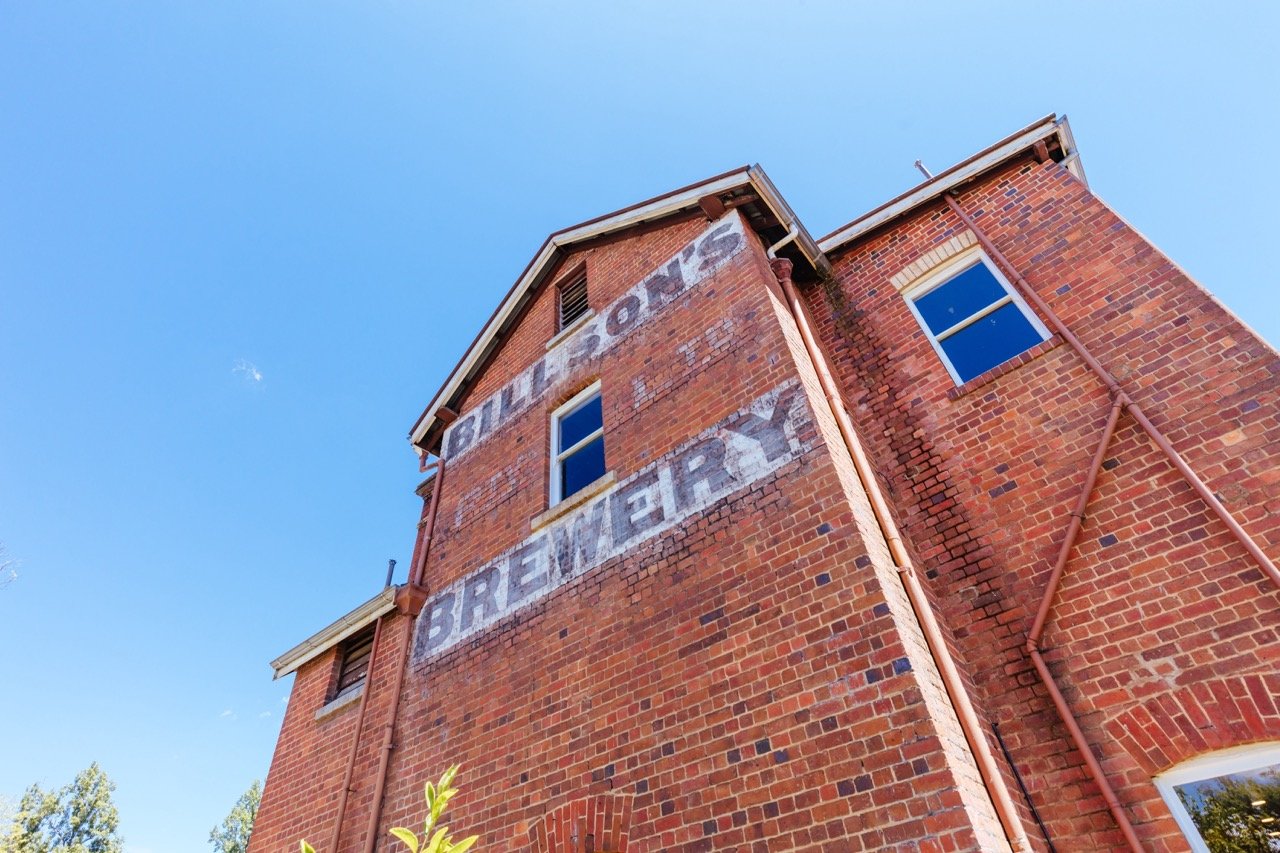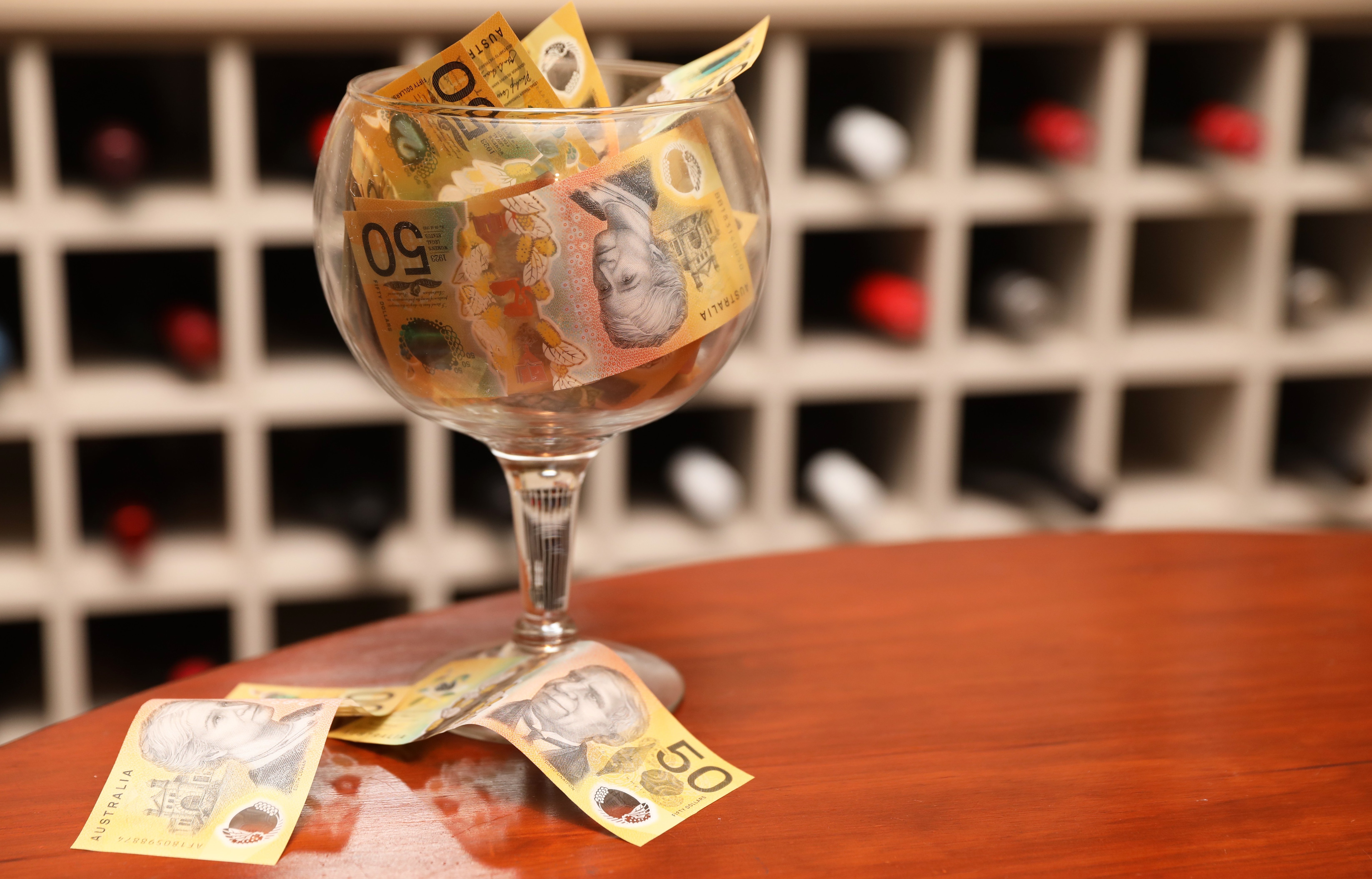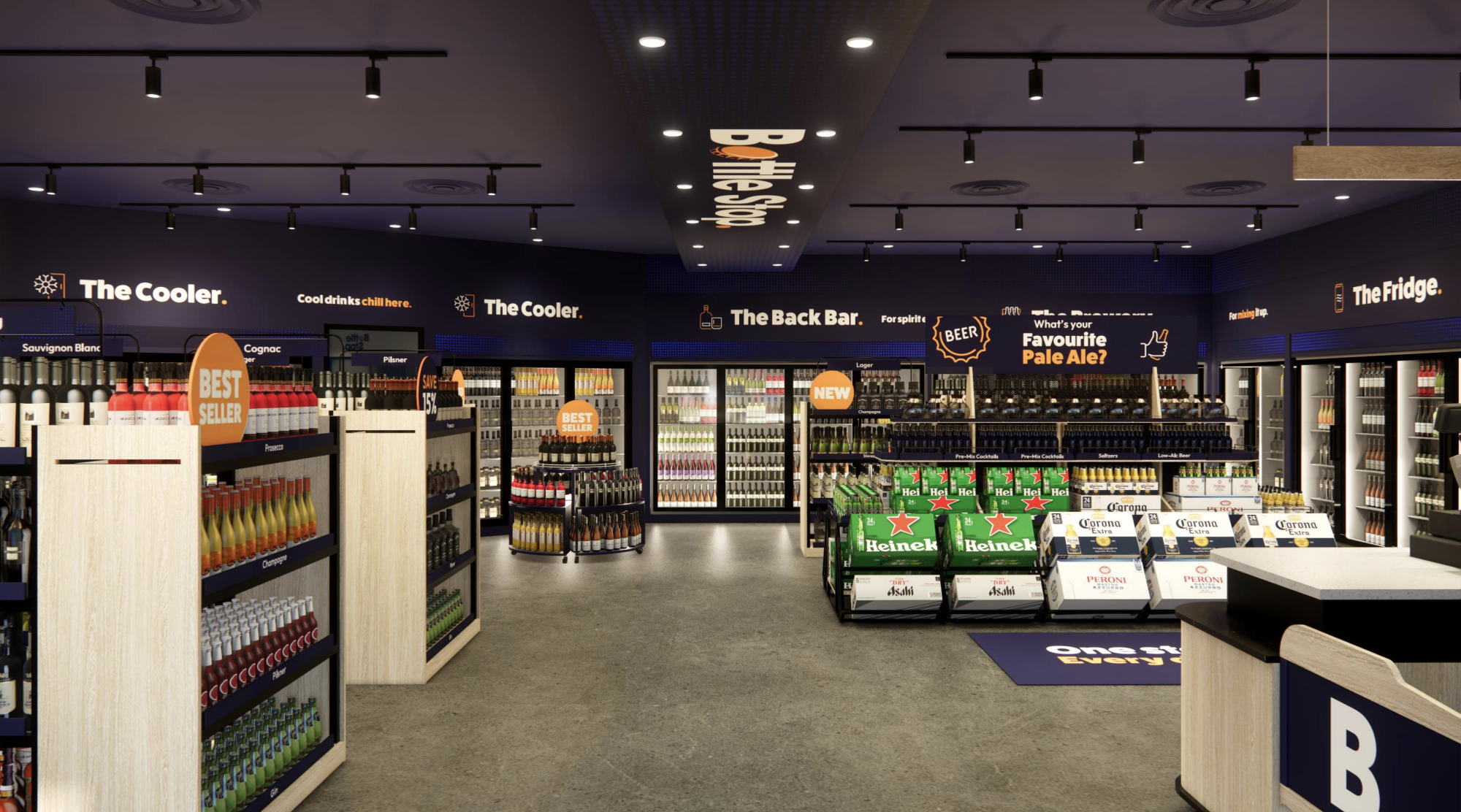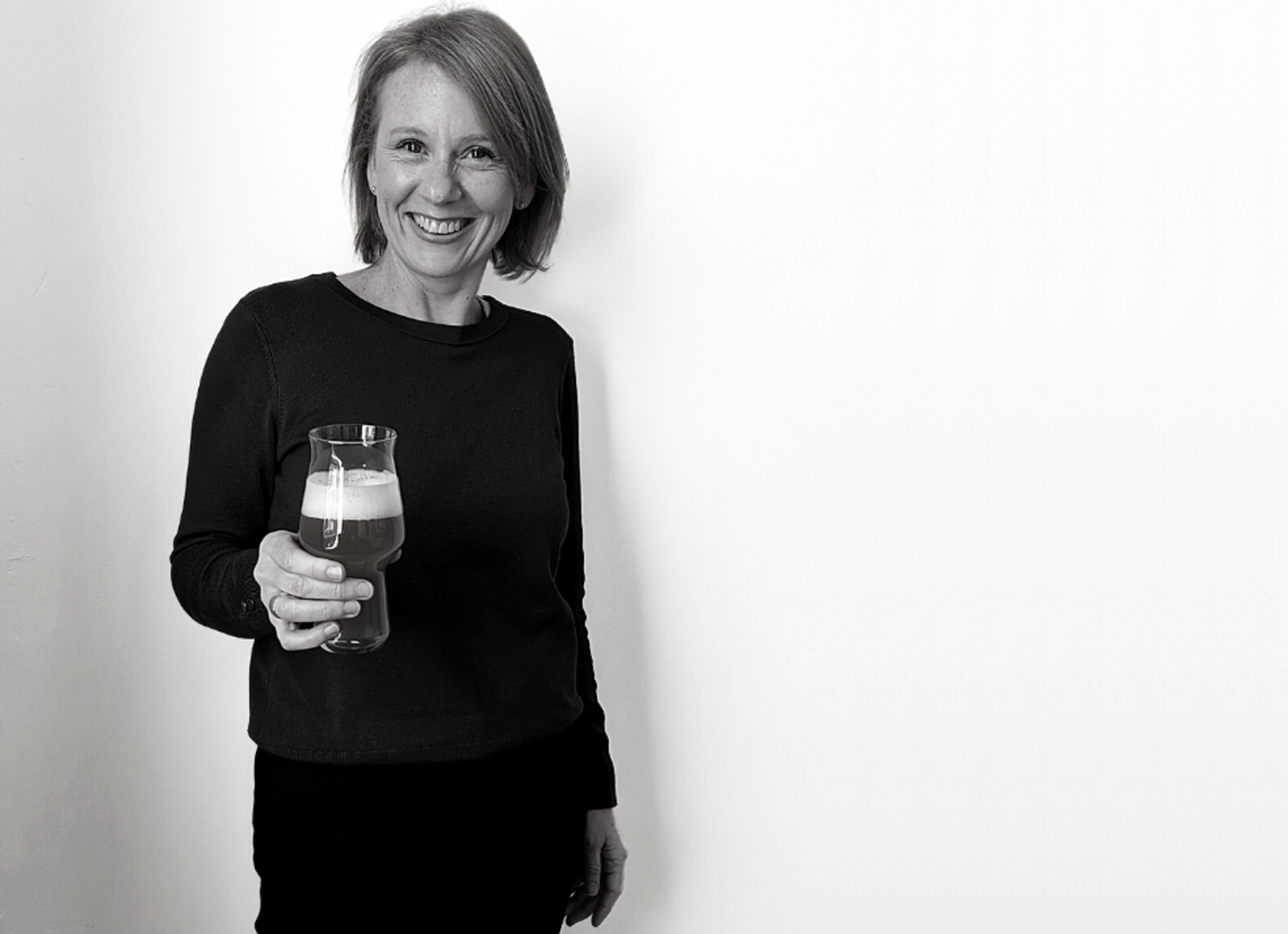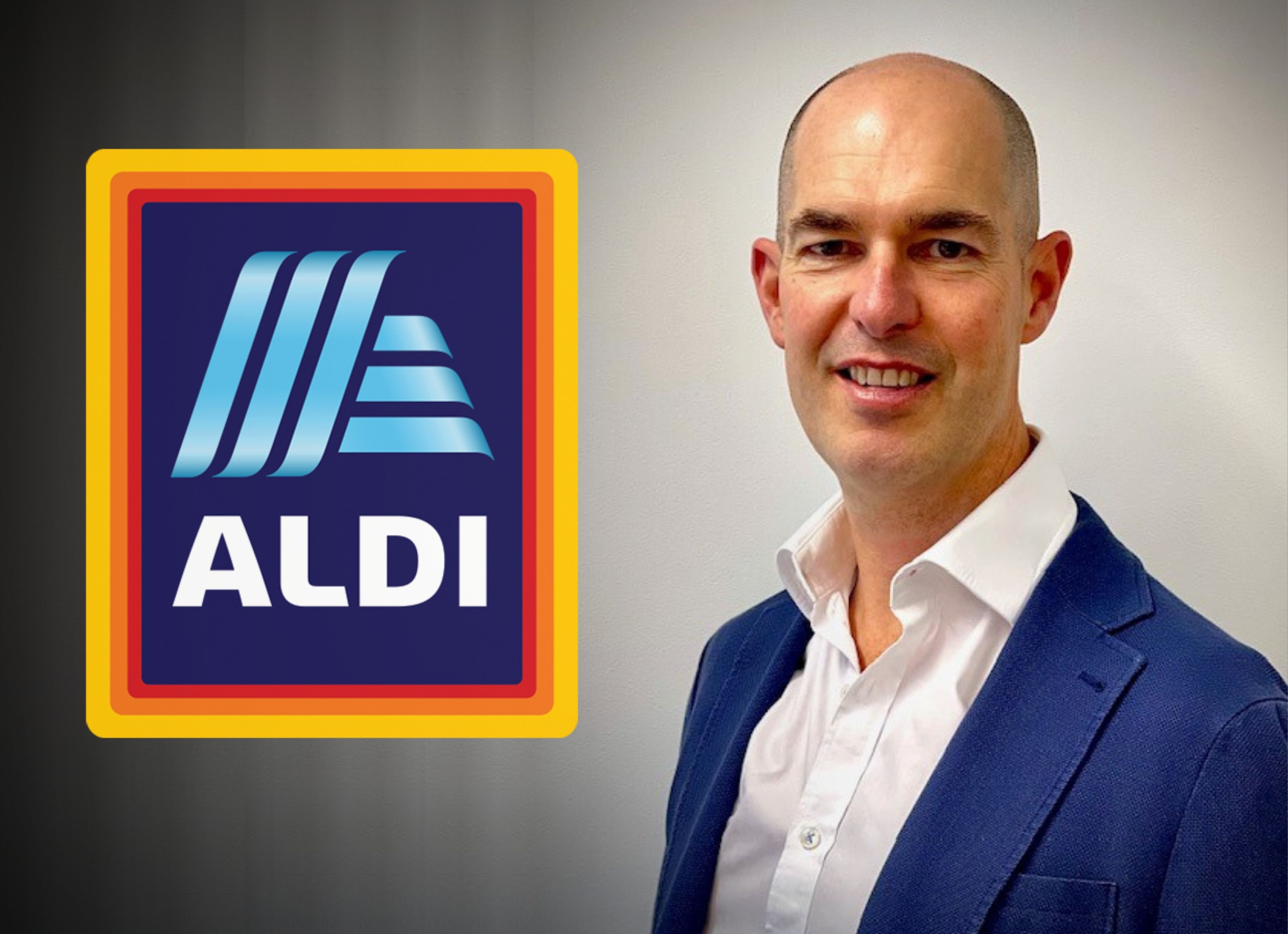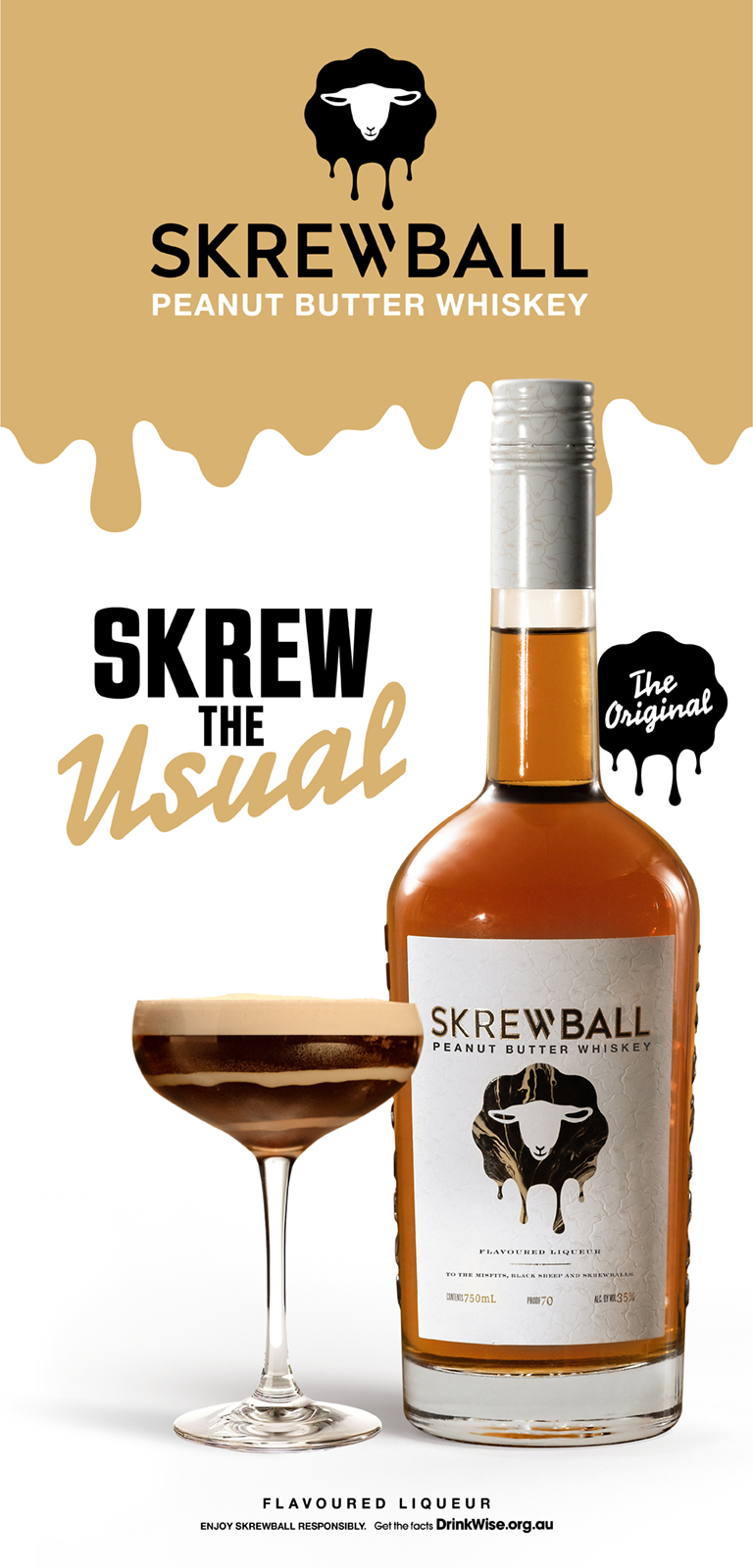Last week in London, Australian RTD Cocktail producer Curatif was awarded the prestigious IWSC 2024 RTD Producer Trophy for the third consecutive year.
Two evenings later, Curatif went on to be named the Specialty Brand of the Year at the 2024 Spirits Business Awards, also held in London.
Drinks Trade took the opportunity to catch up with Matt Sanger, Curatif's Co-Founder and Director, following his arrival back to Australian shores.
Drinks Trade: Talk me through the past few weeks?
Matt Sanger: So back-to-back-to-back at IWSC, it’s pretty thrilling to be the first in the world that's done that; and then Spirits Business Speciality Brand of the Year, which is super exciting. [That’s] a tough category as well, because we're not just up against RTD and RTD Cocktails, we're up against liqueurs and gins and non-alcoholics and everything, so I think that speaks to the excitement around our brand.
It's at a level where it really is making the industry sit up and take notice of what we're making/what we're doing.
DT: What do you think sets Curatif apart as the three-time best in the world and what’s behind your current momentum?
MS: I think it's to do with [that] we've been through a big evolution in our business. One thing that's very continuous is we're super focused on authenticity, we're super focused on fresh, we're super focused on using real class-leading spirits and liqueurs, we're hyper-focused on making real cocktails; and I think one of the early missteps was probably focussing around the messaging around that too much. Consumers don't really care, right? From a consumer perspective, having a cocktail is like a moment of indulgence and luxury, they're not interested in how the sausage was made.
So one thing to answer your question a bit more succinctly is our innovation is driven very much by our responsiveness to consumer desires and aspirations… The other and final part of my answer is, because of that responsiveness and because of how close we are to our customers (because it's such a big part of our business being our direct-to-consumer and our subscription business) it means that we can really have our tendrils in the water feeling the shifts in the tides of consumer aspiration.
DT: What are consumers focused on and how has that shaped the business’ evolution?
MS: Consumers care about two things: is it delicious? and can I have it now? That has driven probably an ideological shift in the sorts of cocktails that we're making as well. When we started out, obviously martinis, especially, were an engine within our business (and Negroni) and rapidly we sort of saw that, [even though] a Negroni is an important cocktail, it's not necessarily the cocktail that people are reaching for in the moment of celebration, which is what a cocktail is. They're going for something fun. They're going for margarita/they're going for piña colada/they're going for limoncello sour.
DT: Does this mean you’re now leaning more into trends?
MS: I think we're leaning more towards fun; that's the big thing. We can be as serious as hell about our ingredients and our process and everything else, but the thing to remember is cocktails are fun, so let's just have fun, right?
We still maintain our fundamental three pillars, which is quality, convenience, and sustainability, but then one of the big driving decision-making questions is wouldn't this be fun?
DT: Does this focus alienate the more educated cocktail drinker?
MS: I don't think so. I'll answer it from my perspective. I was a baby bartender in the early 2000s… and I sort of grew up with the cocktail renaissance as it happened. I became relatively nerdy ( not all the way down to molecular mixology and that sort of thing, but I think certainly not far off), and I think there's always going to be a place for that.
We will never replace a great cocktail bartender… Realistically, our spot is and will always be, this is a fun cocktail, I'm having a fun time, and so I think from that perspective, even the nerdiest bartender on a sunny Sunday afternoon goes I could easily smash a full pack of Curatif Margaritas in the park.
DT: How has the RTD cocktail space changed since Curatif was first launched?
MS: So we launched in 2019 and, from a canned cocktail perspective, there was nothing. The Everleigh guys were around (and obviously they've got a really cool product and a really cool brand), and there were a couple of other smaller players around.
Now, the big guys are doing stuff, and there is the big shift into cans, and that can movement is driven by sustainability considerations, but it's more around product consideration, which is that it prevents UV and you can control the environment within the can from an oxygen level or an oxygen perspective.
DT: Do you believe the current RTD cocktail market is overcrowded?
MS: There's always room for more entrants. We obviously look at everything that comes out. We love seeing innovation from other makers. That is so important in any category, because then everybody wants to make the next best thing.
[Also], the landscape's super crowded, but I still believe that it has a really interesting depth. It's got ultra high convenience, low innovation, low costs entrance, that is designed for, you know, I'm going to go pick up a 12 pack of these and have them all on the train to the footy or whatever. Then at the higher end of that world, you've got things that are full bottle expressions that might be more expensive. And then I think you've got this kind of perfect point where I think we're positioned.
DT: How does Australia’s RTD Cocktail sector overall stack up against other global competitors?
MS: Australia's ahead of the curve in an alcove full stop. But IWSC, we've won three, and there's only a couple of businesses that have won three. Four Pillars is another. Look at what Four Pillars have done for craft gin, and very much a similar story around authenticity, to focus on craft. And you don't have to go very far to look at things like whiskies and rums and wherever else and you see that we're leading the charge in quality and innovation and craftsmanship across so many categories.
DT: Where do you see the category heading in the short- to mid-term?
MS: There's a few things, First, spirits excise - excise has increased by 40% or something since 2019 - that is hurting the players in this category. That will have a long-term material impact on the quality of product that manufacturers can make, just because there's margin expectations. For us, we're relatively insulated because of the price of our product, so, I think that's a broader category piece.
I think there's always going to continue to be this shift towards playfulness. I think there's going to be continuing this shift towards fun and excitement in the category, and I think that that's playing out a lot. As you started to see the big players entering, they're entering with fun, household-name cocktails - Diageo's got a bottled Cosmopolitan, for example - so I think that's going to be where it's at. It's going to be your top 10 cocktails that are the top 10 cocktails every year that will continue to roll out.
I think that where it gets interesting, as this category matures, is how will businesses like ours continue to innovate to remain interesting.
DT: How will you approach that?
MS: Great question. I think if I was answering a question to the board and shareholders, it would be a long-winded strategic answer in place. I think we will continue to be responsive to what consumers and the market looks for. The Limoncello Sour is a perfect example. That was not on our radar at all. We made one for one of our key account customers in their own label, and then it was super well-received, so we put it out in the Club in our subscription program, and then it was super well-received there, and we said, geez, it's being so well-received everywhere, we might as well put this out as a retail product and see what happens.
So the answer to your question is just be responsive: continue to listen to consumers/what they're looking for, continue to monitor trends, see where they're truly going, and when those things align and the consumers are looking for something, and the trend fits (and it fits with sort of the ethos and positioning of the business) then that's where the opportunities are.
DT: What trends do you think will emerge in RTD in 2025?
MS: You know, I got asked this question at the start of the year, and we called out a couple of flavours that we thought were going to be massive this year. Peach was one, coconut was another. Peach has certainly hit in that RTD space, and I think coconut will still do its time.
I think, for the trends for next year, any guess that I put forward will probably be wrong. I think it's going to be whatever captures the heart of the people in the moment.
DT: How have Curatif’s kegged offerings been performing?
MS: So we do a three litre keg; we've actually just had to take it down off the website today because it's been so much more popular than we thought it would be, and so that'll be back just before Christmas.
We also do larger format 20 litre kegs - which are designed for on-premise or the very serious on-premise enthusiasts - and that's been an important part of our business now as we continue to expand our footprint in on-premise.
We have espresso martini, margarita, pina colada, limoncello sour, and another one all on keg at the moment as well.
DT: We’ve heard from players such as Vanguard explain the value proposition of their Cocktails on Tap portfolio… How does Curatif’s offer compare?
MS: For operators, it's really simple, and I actually had this conversation with a major pub clerk some time ago now. He said, look, you're going to end up disappointing a lot of your customers, and you're going to choose which way you're going to disappoint them.
So option number one, it's Saturday night, you're pumping, customer comes in, they pick up the cocktail menu and they go, I love an espresso martini, it's Saturday night, I can wait, and they pay their $18/$20/$25/$30… and they go back to the table and they wait. Let's say that cocktail bartender or the dispense is absolutely pumped and it's Saturday night and so let's say it takes 10 minutes to come out, and because they're under the pump, they let it sit in the shaker too long and it's over diluted. So it took ages and then it failed to meet the customer's expectation.
The alternative is they come in, they go, espresso martini, I love an espresso martini, and the bartender pulls out a can or pulls the handle on a tap and they go, oh, a pre-mixed one, and then 10 seconds later, their espresso martini is in front of them (and that's a four 95 and 96 point gold medals in a row at the International Wine & Spirit Competition, back to back double gold medals at San Francisco, a champion ready to drink at the Sydney Royal this year, single origin coffee) This incredible Espresso Martini and they're disappointed with 15 seconds… I know how I would prefer to disappoint my customer.
[Also], I think the modern consumer now more than ever has got their head around premix cocktails in the on-premise environment. They understand that if they go to a hotel or a pub or a restaurant or whatever it is, that they can order a cocktail with confidence that you don't have to have somebody standing there shaking it up all the time to get an amazing product.
DT: Do you feel as though aspects such as branding, marketing, and product design are more important for categories such as RTD cocktails, and how has Curatif evolved over time?
MS: Again, this is one of the privileges that we have of being in a new category. Like with whisky, there's only so far you can get before you go too fringe and you lose potentially the core consumer. I think wine has had the great benefit of being able to communicate positioning and concepts through labelling for a long time, whereas for us, we've kind of had a clean slate.
We come back to that it should be fun [and] it should be relatable; and so that's a big part of the ethos of how we firstly approach our packaging, obviously, [and] our product design; but then also our packaging design, how we communicate about our product in market, [and] how we communicate about our product full stop.
DT: How about the actual production methods and logistics of canned cocktails?
MS: There are plenty of difficulties. The can format is a big part of the puzzle there because we are able to obviously reduce UV/we're obviously able to control the environment within there. We do everything under liquid nitrogen, and there's the processes by how we treat our fresh citrus, for example. There's a lot to it, and we've amalgamated processes from winemaking and beer making and standardised modern manufacturing methods from food.
There's a lot that we've had to draw on to get that right, and it has been a laddered learning experience.
DT: And lastly, any advice to other Australian RTD producers?
MS: Stay true to your authenticity. That’s just the number one rule. If somebody's getting into the business of making RTD cocktails, or making wine or whisky, or whatever else that it is, they've got this idea about why they got into it in the first place. Hang on to that idea and attach it to the authenticity. Make sure you're using real ingredients. Make sure you're working with great spirit parts. Make sure you're using real ingredients.
Don't listen to the people that say, hey, you got to make this a X and Y so we can sell it at nine dollars because it won't work if you don't. If you've got a good idea, you've got a good idea. Listen to the advice that everybody gives you for sure, but take out the part that's noise and take out the truth and continue to stick with it.
Share the content
